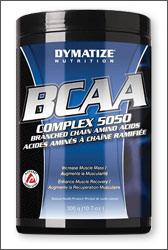Branched Chain Amino Acids (BCAA)

Amino Profile: Among the most beneficial and effective supplements in any sports nutrition program are branched chain amino acids. These are the essential amino's: leucine, isoleucine, and valine. Although these supplements have been around for a long time and the scientific understanding in the exercise performance benefits of BCAA supplementation is rich many people don't know exactly how they exert their effects or how and when to use them properly. You probably know that amino acids are the building blocks of protein. When you eat a protein food, it gets digested in the stomach and intestine into individual amino acids and short chains of amino acids that are small enough to be absorbed into the bloodstream. These amino acids have far reaching effects in the body from building and repairing tissues, to producing chemicals that enable our brains to function optimally. What Is The Difference Between Essential and Non-Essential Amino Acids?
Essential amino acids cannot be made by the body. You must get them from complete protein foods or combinations of incomplete vegetable foods. There are 9 essential amino acids: Histidine Isoleucine, Leucine, Lysine, Methionine, Phenylalanine, Threonine, Tryptophan and Valine. Your body can make non-essential amino acids by itself from vitamins and other amino acids. The term "non-essential" can be misleading since all amino acids are essential for proper metabolism and certain non-essential amino acids, such as glutamine, become very essential. The 13 non-essential amino acids are alanine, arginine, aspartic acid, cysteine, cystine, glutamic acid, glutamine, glycine, hydroxyproline, proline, serine, & tyrosine. The essential branched chain amino acids (BCAA's) are of special importance for athletes because they are metabolized in the muscle, rather than in the liver. Here's how this works: once protein is broken down into individual amino acids these amino's can either be used to build new proteins or be burned as fuel to produce energy. So, in the case of strength or endurance athletes, BCAA's are essentially the parts of protein used as "fuel" and when the stores have been exhausted, the body "strips" or catabolizes lean muscle to get more of them for energy. Up to 15% of energy burned in athletic activity is provided by hard-earned muscle, essentially "eating" what the athlete has been training hard to develop! Supplemental Usage and Dosing: Below are sample guidelines on effective BCAA supplementation: Pre-Workout: 2.5g dose (1/2 tsp) or equivalent capsule dose
Post Workout: 5g dose (1 tsp) or equivalent capsule dose
|
|||
|
|

 CANADA
CANADA UNITED STATES
UNITED STATES

